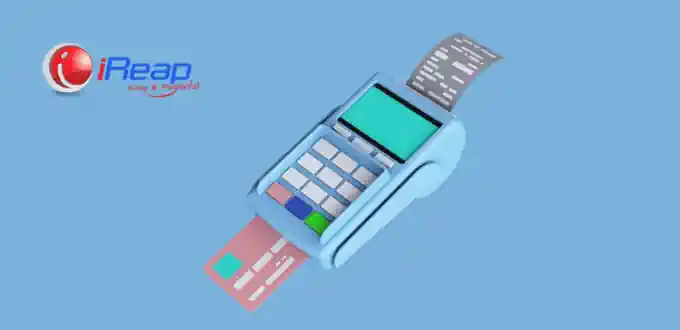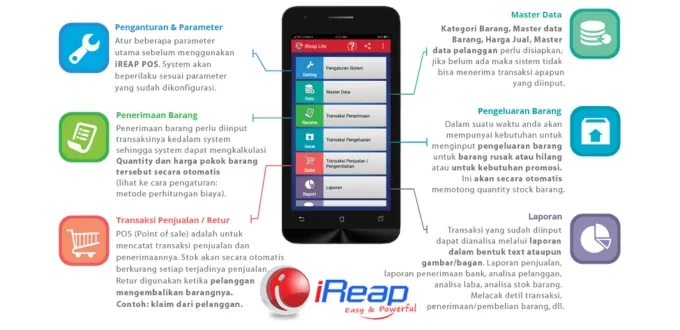
Upon hearing the term POS or Point of Sale, what comes to mind? Perhaps an immediate association with cashier applications for recording sales. There is truth in this notion. However, it would be prudent for you to delve comprehensively into the understanding of Point of Sale and its various types, so that you may opt for the most fitting solution tailored to your business needs. Come, let us peruse the complete elucidation in this article.
Point of Sale: An Elucidation
The concept of Point of Sale entails the juncture at which buyer and seller converge to engage in transactions. This is why Point of Sale is often likened to a fusion of cashier desk, cash register apparatus, and the ultimate point where the sales transaction process culminates.
Its form takes shape as a system comprised of hardware components (such as computers, receipt printers, and barcode scanners) and software modules.
Both the hardware and software components operate harmoniously to record all business transactions occurring within a specified period, compute total payments, receive payments, generate comprehensive financial reports, and manage inventory.
Which enterprises stand to benefit from Point of Sale (POS) utilization? Ranging from eateries, grocery stores, convenience markets, salons, workshops, cafes, restaurants, laundries, and a myriad of other business enterprises, including online ventures and services, all can harness this POS system.
Four Variants of Point of Sale (POS)
In the broader context, there exist four distinct Point of Sale variants available for your business management. Each type brings its own merits, strengths, and limitations. Continue to peruse the ensuing commentary to aptly choose the variant most congruent with your business exigencies...

1. Traditional Point of Sale System
The traditional POS system embodies simplicity, catering to even those who have not yet acquainted themselves with modern technology.
This traditional POS system can function autonomously without an internet connection. However, regrettably, it necessitates greater financial expenditure for the procurement of hardware and software components.
Although it remains a pivotal tool for transaction management and receipt, the traditional Point of Sale harbors several shortcomings, including:
- Limitations in functionality and features.
- Absence of real-time data integration capabilities.
- Lack of features for automatic inventory management and comprehensive financial reporting.
- Challenges in data retrieval when specific information is needed.
2. Mobile Point of Sale
Engaging the mobile Point of Sale entails the usage of a mere smartphone or tablet. To expedite the data input process for sold products, the addition of a barcode scanner and a receipt printer is recommended.
Through the utilization of this mobile Point of Sale apparatus, one can swiftly record transactions, calculate total sales amounts, and accept payments. Moreover, the determination of Cost of Goods Sold (COGS) is readily achievable.
Its features markedly surpass those of the traditional POS, hence proving advantageous to business proprietors.
This system facilitates efficient business management, enabling streamlined sales and revenue tracking, inventory and stock management, customer relations, and comprehensive business analysis.
The drawbacks of this system include the need for subscription costs and the procurement of auxiliary devices such as printers and barcode scanners. Customization efforts are also requisite to align the system with business requisites, including data input for products and other specifications.
Furthermore, a period of adaptation and staff training is warranted to ensure proficient system utilization. A vital note of consideration is the assurance of selecting a mobile POS system endowed with robust security measures, such as the exemplar iReap POS.
With the utilization of iReap POS, the enterprise gains substantial assistance in recording business transactions, managing sales, inventory, and merchandise, while conveniently generating detailed and real-time financial reports.
Another virtue lies in the integration of iReap POS with Quick Response Code Indonesian Standard (QRIS), facilitating acceptance of payments through diverse modalities such as e-wallets, bank transfers, credit cards, and more.

3. Cloud-Based POS
Cloud-based Point of Sale allows for online storage of business transaction data, rendering access and analysis feasible from virtually anywhere and at any time.
The adoption of a cloud-based POS entails manifold benefits, boasting a plethora of comprehensive features and automatic updates, in addition to integration with various systems.
4. Self-Service Kiosks
Have you ever visited fast-food establishments, conventional restaurants, or airports and used a self-service machine to place orders for food, beverages, or products?
These devices are termed self-service kiosks, constituting an integral facet of the Point of Sale system.
To elucidate, a self-service kiosk is an automated apparatus designed to empower users to independently execute diverse tasks or transactions, devoid of direct interaction with staff or attendants.
These self-service kiosks typically feature intuitive touch screens or interfaces, enabling users to select options, input information, and carry out specific tasks with ease.
Examples of self-service kiosk applications include:
- Ordering food and beverages at restaurants or cafes, including menu selection, customization of orders, and autonomous payment.
- Purchasing tickets for public transportation, cinemas, or other events.
- Flight or event check-in through ticket printing or barcode retrieval.
- Bill payments or banking transactions, such as deposits or withdrawals.
- Self-registration at hospitals or healthcare facilities.
- Product information retrieval at retail stores and shopping centers.
Now, you possess a comprehensive comprehension of Point of Sale and its diverse typologies, thereby enabling you to judiciously select and employ the most apropos choice for your unique requisites. If you seek clarification regarding the distinctions between traditional and cloud-based POS systems, you may refer to the article titled: “Distinguishing Traditional and Cloud-Based Point of Sale“.



